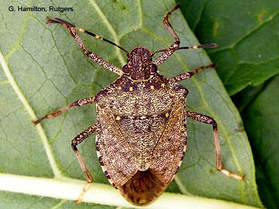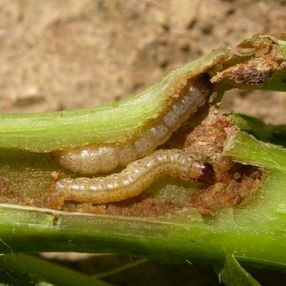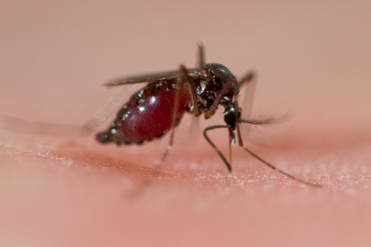 The United States is not the only country recently invaded by the brown marmorated stink bug (BMSB). In addition to several other countries in Europe and Asia, the Republic of Abkhazia, part of the former Soviet Union, recently received this unwanted visitor. BMSB has become a major pest on important crops including hazelnuts, grapes, and other fruits and is invading homes by the thousands. The United States Department of State and World Learning Incorporated contacted the Department of Entomology to arrange a visit with our leaders and scientists to learn about the brown marmorated stink bug. Their objectives are to discover the impact of the BMSB on fruit, vegetable, and other crops in the Mid-Atlantic region of the U.S.; to identify key research studies and current findings to assist in mitigating agricultural damage of the BMSB on crops in the South Caucasus; and to learn how institutions, organizations and farmers are partnering and collaborating to manage serious pests and other threats to agriculture.  CAPTION: Vegetable infestation and damage from the European Corn Borer. CREDIT Tom Kuhar CAPTION: Vegetable infestation and damage from the European Corn Borer. CREDIT Tom Kuhar Dr. Galen Dively and Dr. Dilip Venugopal, UMD Research Associate, look at 40 years of data to determine effectiveness of Bt corn as a pest management strategy. This study is the first to quantify benefits of Bt corn adoption across multiple offsite crops. Benefits include 90 percent suppression of pests, limited spraying and crop damage reduction. "This is the first paper published showing offsite benefits to other host plants for a pest like the corn borer, which is a significant pest for many other crops like green beans and peppers," says Dively. "We are seeing really more than 90 percent suppression of the European corn borer population in our area for these crops, which is incredible." Read the full release on the College of Agriculture and Natural Resources' news page.
|
Categories
All
Archives
June 2024
|
Department of Entomology
University of Maryland
4112 Plant Sciences Building
College Park, MD 20742-4454
USA
Telephone: 301.405.3911
Fax: 301.314.9290
University of Maryland
4112 Plant Sciences Building
College Park, MD 20742-4454
USA
Telephone: 301.405.3911
Fax: 301.314.9290


 RSS Feed
RSS Feed




